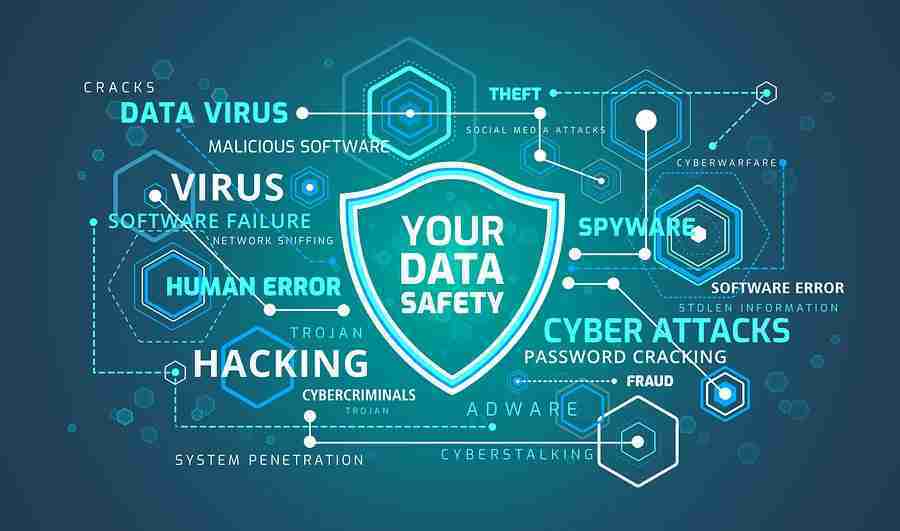KEEP IN TOUCH
Subscribe to our mailing list to get free tips on Data Protection and Cybersecurity updates weekly!







We are committed to the security and protection of the personal data of our customers and employees. As the world gets smaller the importance of protecting data privacy becomes ever important. Not only do we need to be concerned and compliant with cybersecurity laws, but we need to be proactive about understanding and maintaining compliance on international data privacy laws and regulations like EU’s GDPR.
Our Data Protection framework intends to address how our company is building a model and framework for proactively implementing data protection framework in our organization.
The first step in protecting the data is understanding the data you are trying to protect. The first step in our process to data protection framework is to identify the data we needed to protect, understand why we were storing the data, and map out how the data transfers through our systems and processes. We regularly and frequently audits the personal data we collect and process so that we have a clear understanding of that data and how that data is used.
Data Protection framework by Design or Privacy by Design is the practice of proactively implementing data protection framework in your systems and your processes. We believe that the best way to protect the data is to practice data protection framework in our day to day processes and build it in our systems from the start instead of retroactively and reactively solving data privacy issues as a result of breach.
From the point of initiating the conversations with our customers, to building software, we believe that data protection framework needs to be the default and considerations need to be assessed and built from the earliest stage in processes that potentially impact data protection. Our practices Data Protection framework by Design from the very beginning and all the way through our processes.

Timely reporting of data breaches to the appropriate subjects is important in mitigating the risks and fines associated with such an occurrence. Having a formal security and data privacy incident response plan is critical in making sure that customers, individuals, and Supervisory Authorities are aware of the impact. We implement a formal incident response plan. Their policies speak to how data subjects are to be notified, and where appropriate, how to work with various supervisor authorities.
Having impact assessments as part of an organization’s process will help them to identify and understand the current and new risks in their systems and processing activities. Impact assessments will help by:
Our commitment to Data Protection framework by Design includes the use of Data Protection framework Impact Assessments. Each new process and system implemented within the organization will first go the process to understand if a Data Protection framework Impact Assessment is need, then secondly an Impact Assessment is implemented if a risk to data privacy is identified.
Also read: 12 brief explanation about the benefits of data protection for business success
More and more, data privacy laws are focusing on the rights of the individual. These considerations need to be taken into account and processes and systems need to be built to support these rights. Getting explicit consent to store and transfer an individuals personal data, the right to be forgotten, the right to object, the right to have their data removed, and data retention periods are important rights that every organization needs to be able to support. We have documented and practiced policies that speak to data retention and the rights of the data subjects.
We not only need to commit to data protection ourselves, but need to hold all parties involved in an individual personal data accountable for how they are handling confidentiality and data protection. Our works with their vendors and partners to have the processes and controls in place and to have the commitment to data protection.

Implementing appropriate and organization protection measures is essential in protecting data privacy. Regular testing of those controls will ensure the processes and systems are operating with data privacy and confidentiality in mind. Internal monitoring and audits along with working with outside cybersecurity experts to audit the systems is an import aspect of this. SSAE18 (SOC1/SOC2) testing and ISO 27001 certification are steps you can take to make sure your organization is maintaining compliance. We also working with a third-party firm in demonstrating how they achieve key compliance controls and objectives through SSAE18 (SOC1/SOC2).
To help educate and implement compliance within the organization the designation of a data protection team is needed. The role of this team will be to understand the laws that govern data protection, educate and enforce data protection within the organization and with their customers, vendors and partners.
Our security officer will lead a team of “champions” within the organization. Each business unit has a designated “champion” that helps implement data protection process within their respective unit.
Our security officer is also the public face to the data protection practices and issues the organization faces. The security officer will be the contact to Supervisory Authorities and to customers in an unfortunate occurrence of a data or security breach.
Also read: Privacy policy template important tips for your business